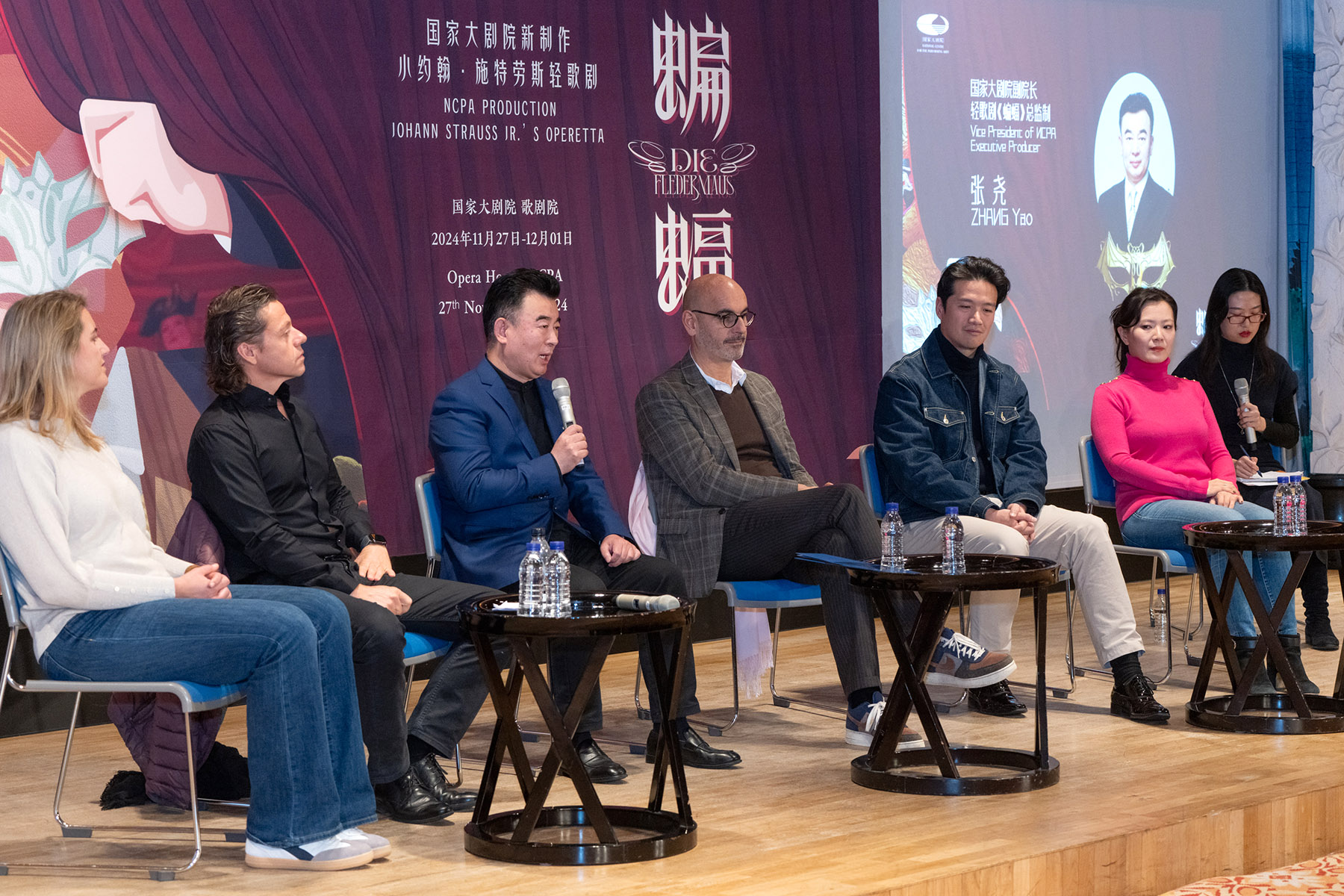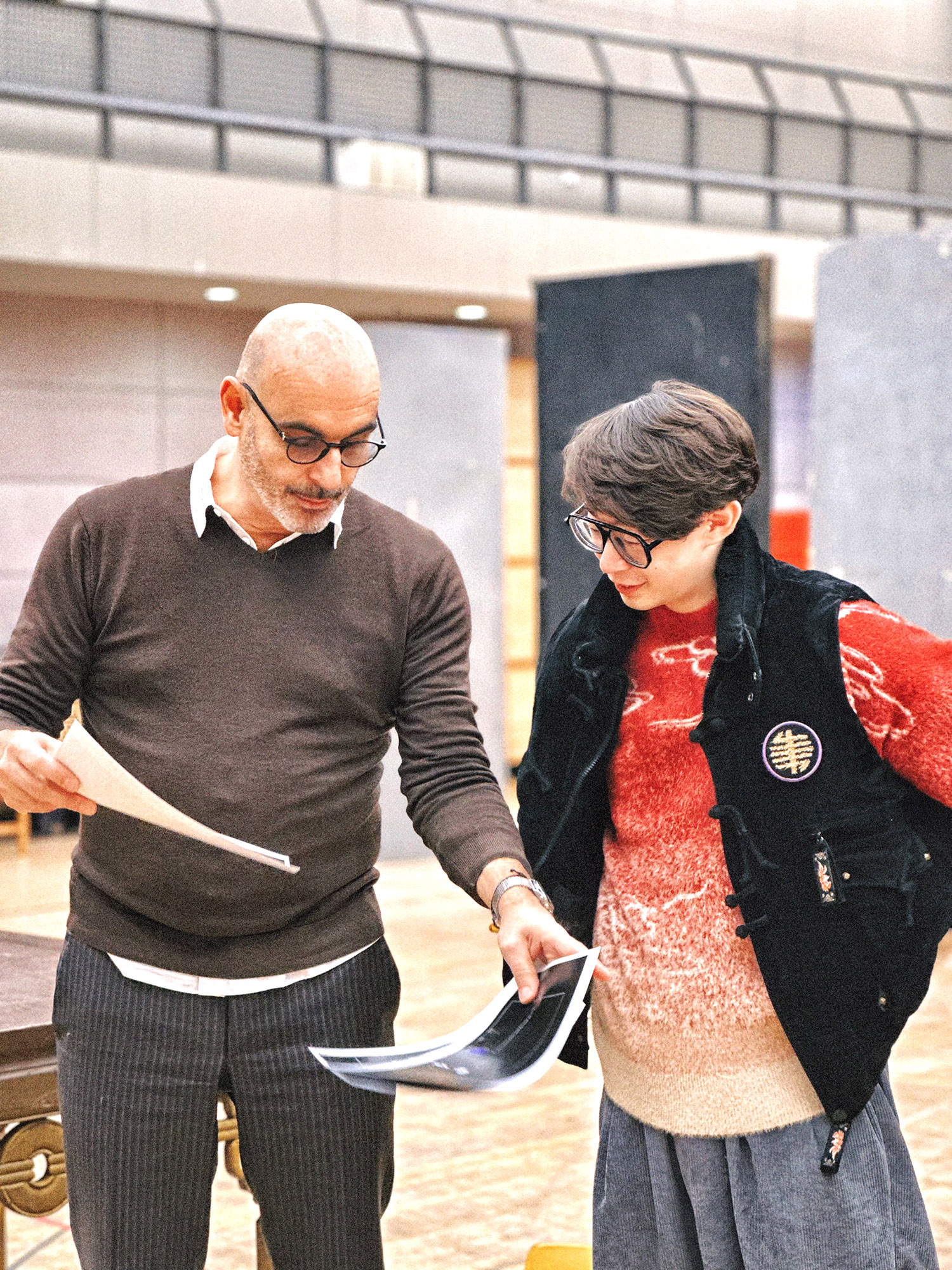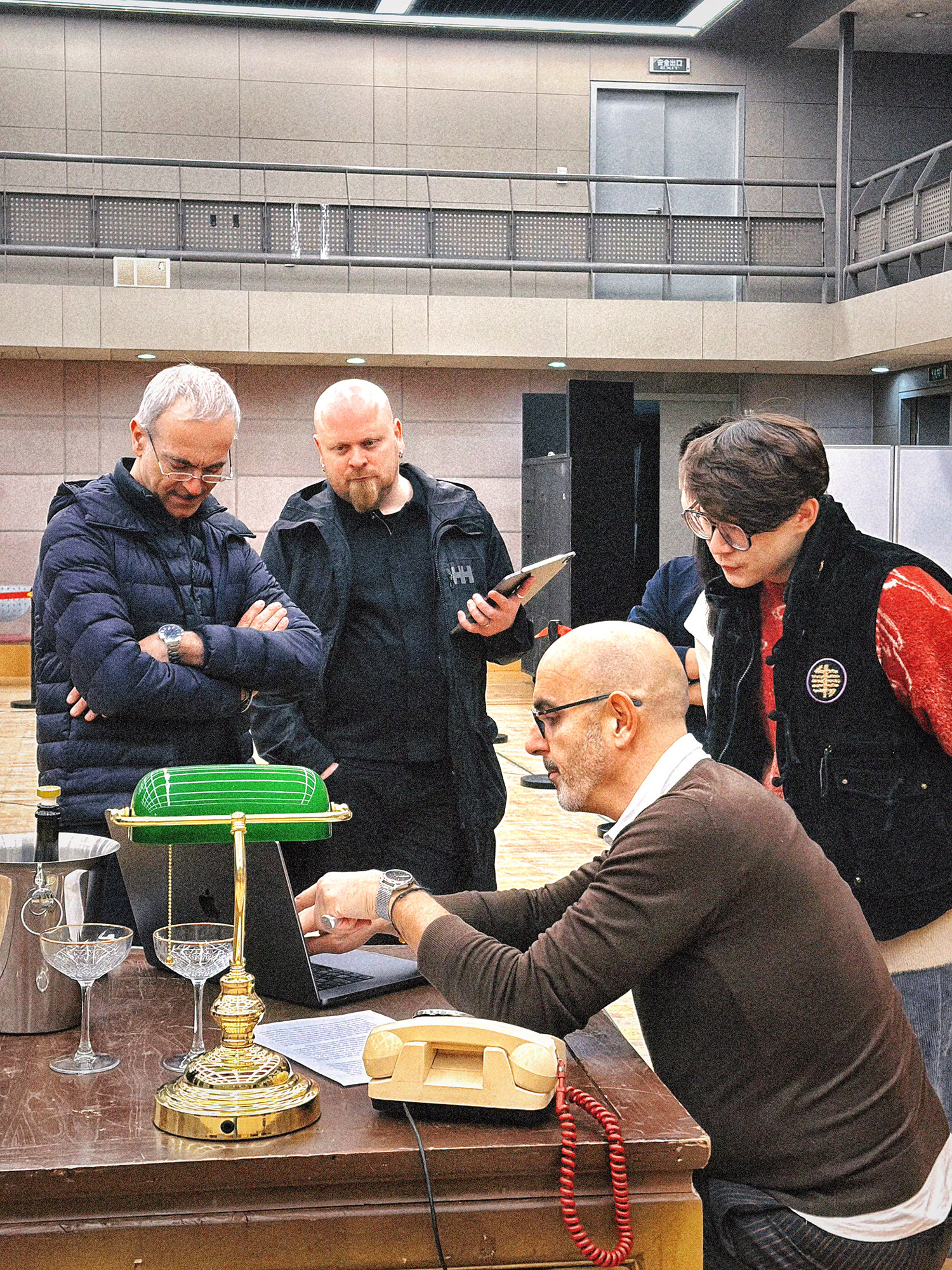Chinese production brings beloved operetta subtly up to date to extend appeal to contemporary audiences, Chen Nan reports.

In addition to being the "King of the Waltz", Austrian composer Johann Strauss II was also a prolific composer of operettas. Among them, Die Fledermaus (The Bat) is one of his most beloved and influential. Since its premiere in Vienna in 1874, it has become a classic, often performed as a New Year's spectacle by famous opera houses around the world.
This year, the National Centre for the Performing Arts in Beijing will stage a new production of Die Fledermaus between Nov 27 and Dec 1 marking its 150th anniversary, presenting audiences with an immersive audiovisual experience, ingenious stage design, and powerful cast.
According to Zhang Yao, deputy director of the NCPA and general supervisor of the production, it brings together creatives from nine countries, with 200 staff also involved.
READ MORE: Classical renewal in the air
"It continues the NCPA's commitment to fostering a global community of performing arts institutions and exploring a collaborative future for world theater," he said during a news conference at the NCPA on Nov 5.
Strauss' composition demonstrates his use of humor and irony, through lively, joyful emotions and boldly incorporates popular dance styles of the time, blending the famous Viennese waltz naturally into the score. The overture to the operetta is a compilation of several of the opera's most beautiful melodies.

French conductor Marc Minkowski is making his first appearance in a Chinese production, and international vocalists, including baritone Markus Werba, baritone Zhou Zhengzhong, soprano Jacquelyn Wagner, and soprano Song Yuanming, will be part of the performances.
The aria Mein Herr Marquis (Laughing Song) sung by the character of Adele, the maid, is regarded as a virtuoso showpiece, and the opera features many other notable musical moments, including the Czardas, Thunder and Lightning Polka, as well as duets, choruses, and dances that are captivating from start to finish. Sopranos Samantha Gaul and Qin Kanru will alternate in playing the role of Adele.
Set in Vienna in the late 19th century, the plot of Die Fledermaus is concise and engaging, with well-rounded, lively characters and witty, dynamic dialogue. The Viennese-style music is beautiful and moving, and the dances are varied, according to Vincent Boussard, the French director and stage designer, who seeks to reveal the complex human nature and emotions behind the joyful and hedonistic atmosphere of the operetta through minimalist stage design and the precise use of projections. Together, the aim is to break away from the traditional, realistic portrayal of Viennese style, infusing the production with a dynamic and graceful modern aesthetic.
"The operetta as a whole blends elegance with humor, intertwining classical and popular elements. It incorporates features of both grand and comic opera, with extensive use of spoken dialogue instead of sung sections," Boussard says. "The language is straightforward, and sharply satirical, and reflects the social issues of Vienna at the time. This gives it both musical artistry and social critique, making it enjoyable to a wide audience, with both refined and popular appeal."
One of the highlights of the production is the costumes by Christian Lacroix, a designer known for work that embodies the spirit of French classical court art. His costumes are a seamless blend of modern aesthetics with traditional Vienna styles, Zhang says.

Falke, a low-ranking, drunken and disoriented comic character, known for his wit and cunning, who appears in the third act, is often played by well-known comedians. In Beijing, he will be played by beloved cross-talk, or xiangsheng, performer Guo Degang from Nov 29 to Dec 1, and by rising theater star Song Tianshuo on Nov 27 and 28. Both performances are highly anticipated.
"Falke has a lengthy monologue with no set text, which allows the actor to improvise a performance that demonstrates his own style," Zhang says. "It's undoubtedly a moment audiences are eagerly looking forward to."
"I've been performing xiangsheng for decades, and also in TV dramas and movies, but I have never performed in an opera, so I seized the opportunity immediately after the NCPA sent me the invitation," Guo said in a video played during the news conference on Nov 5. "As times evolve and society progresses, actors do too. I'm making the effort to learn."
ALSO READ: A lucky 13th for Philadelphia Orchestra
Like Guo, who specializes in xiangsheng, Song grew up learning another traditional Chinese art form, Peking Opera, which combines singing, dancing, martial arts and acrobatics. He was trained by his father, a Peking Opera master, and later rose to fame by playing comic roles in reality TV shows.
"I was very surprised when I was asked to play a role in an opera. I checked the request over and over again," says Song Tianshuo. "So far, the rehearsals have gone very well. Despite the language barrier, we get the same comedy points and communicate well.
"Just as we are trying to bring Peking Opera and other traditional Chinese art forms to contemporary audiences, we are trying to tell the story of Die Fledermaus, which is from 150 years ago, to today's audiences," he adds.
Contact the writer at chennan@chinadaily.com.cn


